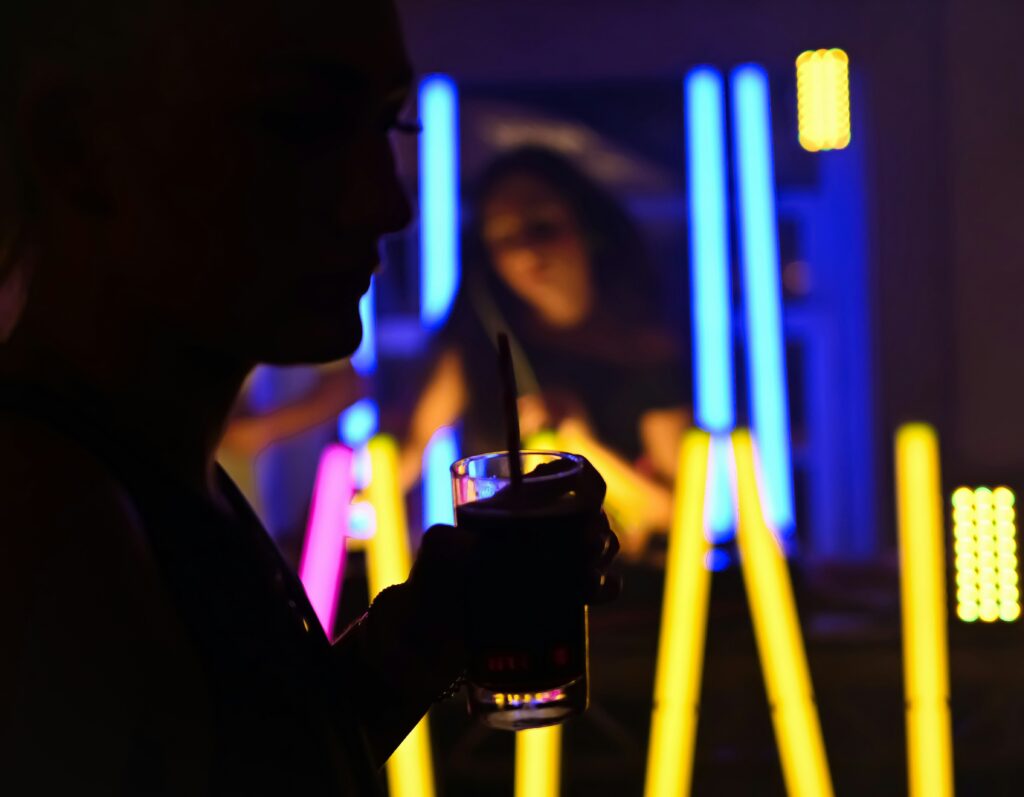Some days I felt like giving up.
Does anyone really care?
What’s the point?
These questions echo in my mind, as I reflect on my time in the restaurant industry. The truth is, these aren’t just idle musings—they are the ghosts of a life lived on the edge of chaos, addiction, and burnout. But they’re also the seeds of resilience and transformation.
I remember what it was like. One shift, in particular, stands out—a snapshot of the unraveling that became my norm.
Three days without sleep.
Vodka on my breath.
A fresh line up my nose.
Empty belly.
Empty heart.
I was standing at the service station, barely holding a pen, teetering on the precipice of collapse. My colleague looked over at me and asked, “Are you okay?” My eyes welled up with tears, my hand trembled, and in a voice so small it was almost swallowed by the chaos around us, I whispered, “I can’t do this anymore.”
He smiled awkwardly, touched my hand, and said, “You got this.” Then, he walked away.
The Reality Behind the Smiles
From the outside, the restaurant industry can look like a whirlwind of energy and camaraderie. The clink of glasses, the sizzle of pans, the rush of adrenaline as the orders pile in—it all feels electric. But behind the scenes, it’s often a different story.
For many of us, the industry becomes a haven for self-destruction. Late nights, long hours, and the constant pressure to perform create a toxic cocktail that many of us drown in, whether it’s with alcohol, drugs, or sheer exhaustion.
The shift I described wasn’t unique; it was a Tuesday. It was the culture—a culture that normalized survival over self-care, grit over grace.
The Service Station Confessional
The service station is where the magic happens—orders are barked, drinks are slung, and staff swap brief moments of connection. It’s also where the cracks start to show. I can’t tell you how many times I stood at that station feeling like I was about to break. My body was in motion, but my soul was empty. And yet, like so many of us, I kept going. Why? Because that’s what we do. We show up, no matter how shattered we are inside.
The industry has a way of convincing you that this is normal. It’s not.
The Loneliness in a Crowd
Working in restaurants, you’re constantly surrounded by people—your colleagues, the customers, the buzz of the room. But it’s one of the loneliest places in the world when you’re struggling.
We don’t talk about what we’re going through. There’s a code, an unspoken rule that you suck it up and keep moving. You lean on your coworkers for a quick laugh or a word of encouragement, but vulnerability? That’s left at the door.
I learned to mask my pain with humor, my exhaustion with adrenaline, and my fear with substances. It was easier to numb myself than to confront the truth: I was drowning.
A Culture of Excess
The restaurant industry thrives on excess. There’s always another round, another shot, another excuse to push your body and mind to the limit. The after-hours drinks, the staff meals that double as a chance to bond, the camaraderie that often blurs into co-dependency—it’s all part of the package.
But for many of us, the line between celebration and self-destruction becomes perilously thin. It’s not just about the substances; it’s about the unrelenting pace, the lack of boundaries, and the culture that rewards endurance over well-being.
The Turning Point
That shift, the one where I whispered, “I can’t do this anymore,” was a wake-up call. It wasn’t a dramatic moment of change—it was a small, fragile realization that something had to give.
My colleague’s words, “You got this,” weren’t revolutionary. They didn’t solve my problems or pull me out of the abyss. But they were a lifeline, a reminder that even in the darkest moments, someone saw me. And sometimes, that’s enough to keep you going for one more shift, one more day, one more chance to figure it out.
What They Don’t Tell You
The restaurant industry is filled with people who are running from something or searching for something. For many of us, it’s both.
They don’t tell you that the high-energy atmosphere can mask deep pain.
They don’t tell you that the camaraderie often comes with a cost.
They don’t tell you that the relentless pace can steal your health, your relationships, and your sense of self.
But they also don’t tell you that it’s possible to heal.
The Road to Recovery
For me, recovery wasn’t about leaving the industry—it was about finding myself within it. It was about recognizing that my worth wasn’t tied to how many double shifts I could survive or how well I could hide my pain.
It took time, and it took help. Therapy, support groups, and a willingness to confront my demons became my lifelines. But perhaps most importantly, it took a decision to believe that I deserved better.
Why This Story Matters
I share this story not to demonize the restaurant industry, but to shine a light on its underbelly—the part we don’t talk about, but desperately need to.
If you’ve worked in restaurants, you’ve probably seen it: the chef who drinks to get through the night, the server who disappears into the bathroom one too many times, the bartender who’s the life of the party but cries on the way home.
We need to start having real conversations about what’s happening behind the scenes. We need to support each other, not just with a quick, “You got this,” but with real tools and spaces to heal.
A Call for Change
The industry doesn’t have to be this way. We can create a culture that values well-being over burnout, authenticity over bravado. It starts with acknowledging the problem and holding space for the people who are struggling.
If you’re reading this and you’re in the thick of it, know this: You’re not alone. There is life beyond the chaos, and it’s worth fighting for.
I’m still here, still healing, still working to make sense of it all. And every time I feel like giving up, I remember that shift, that moment, and the small, imperfect kindness that helped me hold on.
So, to anyone who’s ever whispered, “I can’t do this anymore,” I hear you. I see you. And I’m here to tell you: You got this.
NEED HELP ON THE FLY


